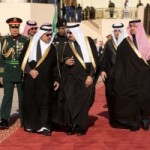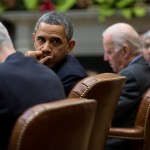By blocking travelers from seven mostly Muslim nations – but not ones that have sent terrorists to the U.S. – President Trump has pushed an incoherent policy that may increase the risks of terrorism, writes ex-CIA analyst Paul R. Pillar.
Tag: Donald Trump
Rachel Maddow Plays Glenn Beck
By pushing the new anti-Russian McCarthyism as an attack strategy against President Trump, Democrats – and progressives like Rachel Maddow – are encouraging a costly and dangerous New Cold War, writes Norman Solomon.
Trump Lets Saudis Off His ‘Muslim Ban’
The Tests Ahead for Trump
Donald Trump’s path to victory was eased by the fact that the Republican and Democratic parties were brittle, corrupt, hollowed-out institutions ready for cracking, but his tests have only begun, writes John Chuckman.
Calling a Lie a Lie in the Age of Trump
The U.S. mainstream media bends over backward not to call the President a liar even when it’s deserved, but Donald Trump’s falsehoods are so glaring that the L word should apply, says ethicist Daniel C. Maguire.
Deep State vs. Donald Trump
President Trump has stepped onto a high-wire in defying America’s Deep State, but can he withstand the powerful winds that will surely buffet him and what will President Putin do to help or hurt, asks ex-British diplomat Alastair Crooke.
Donald Trump and His ‘Magic Mirror’
Exclusive: President Trump’s vain tirades about crowd size and voter fraud make him look like Snow White’s evil queen gazing into her mirror, but he could turn that around by telling some important truths, says Robert Parry.
Trump’s Ego-Driven Lies
U.S. government lying is surely not a new thing – recall the Iraq War deceptions – but Donald Trump has started off his presidency with clearly false claims that make the problem worse, says ex-CIA analyst Paul R. Pillar.
Ignoring the Voice of the People
The massive protests that followed the inauguration should have reminded Donald Trump that he is a minority president with a slim-to-none popular mandate, as Michael Winship describes.


